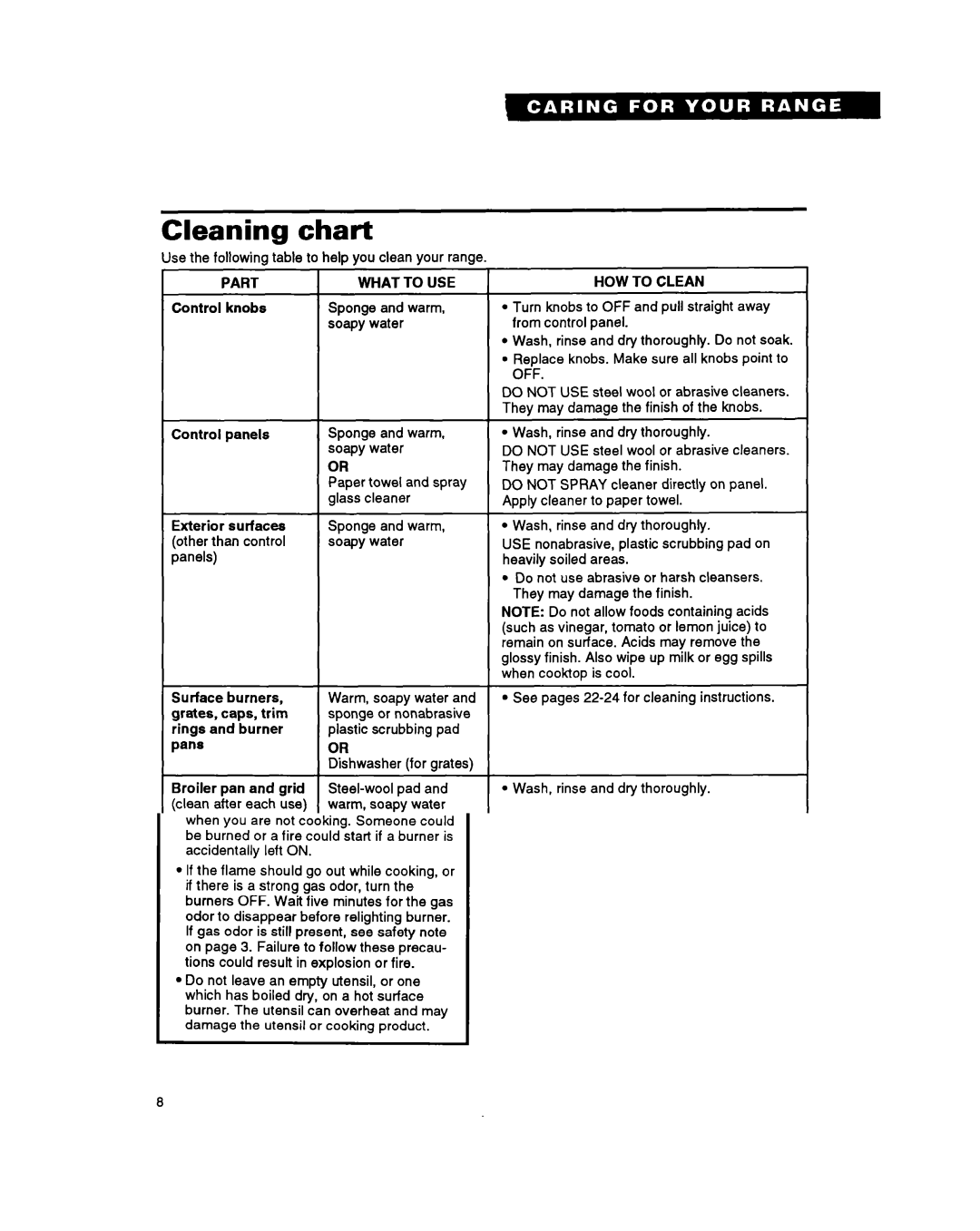
Cleaning chart
Use the following table to help you clean your range.
PART
Control knobs
Control panels
Exterior surfaces (other than control panels)
Surface burners, grates, caps, trim rings and burner pans
Broiler pan and grid
(clean after each use)
Oven racks
Oven door glass
Oven cavity
WHAT TO USE
Sponge and warm, soapy water
Sponge and warm, soapy water
OR
Paper towel and spray glass cleaner
Sponge and warm, soapy water
Warm, soapy water and sponge or nonabrasive plastic scrubbing pad
OR
Dishwasher (for grates)
OR
The
Paper towel and spray glass cleaner
OR
Warm, soapy water and a nonabrasive, plastic scrubbing pad
HOW TO CLEAN
l Turn knobs to OFF and pull straight away from control panel.
l Wash, rinse and dry thoroughly. Do not soak. l Replace knobs. Make sure all knobs point to
OFF.
DO NOT USE steel wool or abrasive cleaners. They may damage the finish of the knobs.
l Wash, rinse and dry thoroughly.
DO NOT USE steel wool or abrasive cleaners. They may damage the finish.
DO NOT SPRAY cleaner directly on panel. Apply cleaner to paper towel.
l Wash, rinse and dry thoroughly.
USE nonabrasive, plastic scrubbing pad on heavily soiled areas.
lDo not use abrasive or harsh cleansers. They may damage the finish.
NOTE: Do not allow foods containing acids (such as vinegar, tomato or lemon juice) to remain on surface. Acids may remove the glossy finish. Also wipe up milk or egg spills when cooktop is cool.
lSee pages
l Wash, rinse and dry thoroughly.
l Wash, rinse and dry thoroughly.
OR
l Leave in oven during
lMake sure oven is cool.
l Follow directions provided with the cleaner.
l Wash, rinse and dry thoroughly.
l See “Using The
